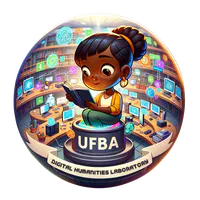Technological changes and innovations have always stimulated shifts in social relations and, simultaneously, evolved from specific forms of social organization that regulated their uses. In recent decades, we have witnessed the rapid spread of digital information and communication technologies (DICTs). This has been altering various aspects of life in society, such as the relationship between time and space; creating new forms of consumption; establishing new parameters, possibilities, and forms of regulation and control of social relations; new ways of searching, sharing, and indexing information and knowledge; and profound changes in how we conduct science.
Currently, all major universities worldwide have digital humanities laboratories. Notable examples include the Yale University Library Digital Humanities Laboratory (DHLab), the Center for Spatial and Textual Analysis (CESTA) at Stanford University, and the Centre for Digital Humanities—a collaboration between the University of Amsterdam, Vrije Universiteit Amsterdam, and the Royal Netherlands Academy of Arts and Sciences. Generally, these initiatives provide space and resources for researchers to work with digital methods to explore humanistic questions.
The LABHD-UFBA – Digital Humanities Laboratory of UFBA, was established in 2018 in association with the Postgraduate Program in Social Sciences (PPGCS) and the Institute of Science, Technology, and Innovation (ICTI/UFBA). The laboratory is duly registered in the CNPq’s Directory of Research Groups and has been establishing partnerships with national and international universities and research institutions. Its guiding principle is to promote the confluence between digital technologies and teaching, research, and extension in the humanities and social sciences. In a schematic manner, the laboratory aims to: a) contribute to the dissemination of a digitalized research/teaching and extension practice; b) promote investigations on the impacts of using digital technologies; c) create and maintain open digital data repositories for various researchers; and d) foster approximation and dialogue between the humanities and the field of technologies.
